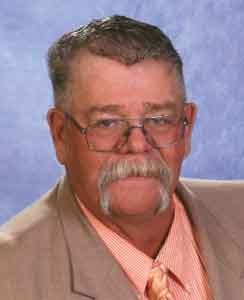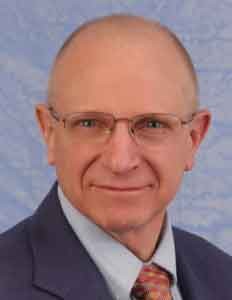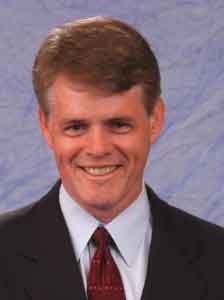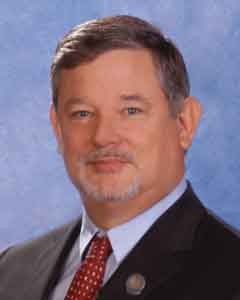By VERNON ROBISON
Moapa Valley Progress

The four legislators who represent the Moapa Valley communities are optimistic about the economic benefits that may be on the horizon for northeastern Clark County. We caught up with each of them last week to get a brief review from them on the recent high-stakes special legislative session that was held last month in Carson City.
In that session, the state legislature approved more than $300 million, in various incentives and infrastructure bonding, to entice Chinese-backed electric car company, Faraday Futures, to build its $1 billion manufacturing plant at the Apex Industrial Park. Each of the four Moapa Valley representatives expressed enthusiasm about what this deal would mean for the state, the southern Nevada region and, more specifically, the Moapa Valley communities.
“I think that the state scored a huge win in this,” said Assemblyman James Oscarson, whose district includes Logandale and Moapa, as well as the Apex Industrial property. “This, along with Tesla in the north, really puts Nevada in the position of being the electric car manufacturing capital of the country.”

State Senator Joe Hardy, whose district includes Overton, agreed that the deal would be good for the southern Nevada region. “And anything good for the economic engine of the state will be good for the rest of the state as well,” he said.
To lure Faraday to Apex, lawmakers approved $215 million in tax abatements and transferrable tax credits for the company. But there were strings attached. Those tax incentives will have to be paid by the company into an escrow account. The funds will only be released back when Faraday has reached certain benchmarks on its financial commitment to the state, according to the language in the bill.
“The Faraday bill was pretty diluted compared to the Tesla deal we approved for northern Nevada,” said State Senator Pete Goicoechea, whose district includes Moapa, Logandale, the Apex site and a huge swath of rural Nevada. “We didn’t give away nearly as much.”
In addition, the legislation authorized up to $175 million in state bonds to front the money needed for road improvments, rail connections and other infrastructure to the Apex site. These bonds would be repaid through revenues from Special Improvement Districts and Tax Increment Districts being established for the area.
“To me it made sense to put that money into the state bonding pledge,” Goicoechea said. “It is all to be paid back through those districts. Yes there is a risk if they fall short or there is a default, then the state bonding would be on the hook. But I don’t think we are going to come anywhere close to a default on this.”
In addition, other benefits will come from the infrastructure finally being built at Apex, Goicoechea said.
“Whether Faraday ever pans out or not that is to be seen,” Goicoechea said. “But either way, I do believe that once the industrial park is going at Apex, and all that infrastructure is in there, it will bode well for you folks up in Moapa. Maybe it will replace some of those jobs lost at Reid Gardner. I think we will all benefit.”

Assemblyman Chris Edwards, whose district includes Overton and Virgin Valley, also believed that developing the infrastructure at Apex would spur development further north up the I-15 corridor.
“I’ve been in discussion with the Mesquite Regional Business organization and we are hoping that whatever will develop at Apex will play into new development at the corporate park at the new exit 118 in Mesquite and at the small industrial park in Moapa,” Edwards said. “So I see a lot of possible benefits to those communities.”
Legislators were also excited about the education and workplace training components that were built into the Faraday legislation. The bill devotes significant funding for economic development and workforce development in rural areas. Those programs are expected to be a help specifically in areas like the Moapa Valley communities and Mesquite.
Edwards said that he was very particular in special session hearings to nail down the fact that workforce training programs would be extended to rural northeast Clark County and not just to urban areas.
“I met with CSN President Richards and asked a bit more of what the intentions were towards helping Mesquite and Moapa,” Edwards said. “He told me that the College planned to be very proactive about getting a lot more classes up there, meeting needs that haven’t always been met and putting forward a greater effort to take advantage of resources available now from this legislation.”

Oscarson said that the job training component would turn out to be important to local families.
“I feel it is critical to keep young people in those communities with good opportunities for good paying jobs,” he said. “We can’t keep losing these people from those little communities who are having to go other places to find work and careers. We have got to have workplaces in our communities to continue to grow and develop. That is why it was so important to me to put the higher education system on record in the hearings that they would work with the Logandale campus and the Mesquite campus to make sure training would be available in those places.”
One of the major legislative hurdles that the Faraday deal had to face dealt with water. Development at Apex has long been on hold due to a lack of water service to the area.
Early on, the concept of building a new pipeline to supply the area was deemed much too costly for this initial legislation. But the area has ample groundwater resources available that could supply the Faraday project at least. So the legislators had to focus on two issues: first, whether the Nevada water law should be changed to expedite the use of that water for economic development; and, second, what entity would be designated as the purveyor of water for the Apex area.
For the first of those issues, Goicoechea said that the original language in the bill was a complete non-starter. Goicoechea, who is a Eureka county rancher, is considered to be one of the authorities on state water issues in the legislature.
“I was a definite ‘no’ with the water language that they had in there to start out,” Goicoechea said.
He explained that the groundwater near Apex was in the Garnet basin, which is just one part in a five-basin superbasin that was designated in 1994 by the Nevada State Engineer.
“They did twelve years of pumping and monitoring and found that those basins respond as one,” Goicoechea explained.
But the water language in the bill didn’t just apply to that superbasin. Rather it extended to apply to all of state water law. The language would change the law to the point that, in order for someone to protest an application of a water right in the state, they had to own rights that are senior to the person or entity making the application.
“That was horrible!” Goicoechea said. “We just can’t have that.”
As an example, Goicoechea cited an instance where Southern Nevada Water Authority (SNWA) had purchased the most senior water rights in Spring Valley in the eastern central part of the state. If one followed the bill’s water language, with SNWA being the senior right holder, no one else would be able to protest any application on those rights, Goicoechea said.
Furthermore, if the language extended beyond the five-basin superbasin into general state water law, as proposed, it would open the door to transferring water across great distances, through various basins, without ever needing to build a pipeline, Goicoechea said.
“Technically, I could see how they could say: ‘Well, Spring Valley is hooked into Snake; and Snake is connected to Hamlin Valley; and eventually they could have hopscotched it all the way down and made those applications,” Goicoechea said. “And again they hold the most senior rights so nobody could’ve protested them.”
Goicoechea said that he was pleased that he was able to put together a block of 24 legislators, many from the Democratic Assembly caucus, who were willing to vote no on the bill if the water language wasn’t removed.
“The folks at SNWA were not very happy about it,” Goicoechea said. “But in the end I just told them, ‘Look I have the votes to kill this. So either we are going to get this right or the whole bill is dead.’”
Finally the governor’s office sent staff members to get the issue fixed and agreement was reached to remove the language, Goicoechea said.
“I supported the bill in the end, because I do believe in the long-term economic benefits for rural Clark County and southern Nevada are going to be tremendous in all of this,” Goicoechea said. “The growth in that industrial complex will be huge.”
The second water issue dealt with who would be named as purveyor of the water. Hardy explained that there was a healthy conflict between Las Vegas Valley Water District (LVVWD) and the City of North Las Vegas over who would control the water services. In the end it was given over to LVVWD.
“North Las Vegas was not very excited that the district was put in charge,” Hardy said. “Because at the same time that they had the purveyorship given to a different entity, they still have the responsibility for the sewer and wastewater services. Without the water revenues, it makes it more interesting on how to afford the infrastructure of sewer systems. So sewer rates may go up and it will be interesting to see how much will be felt by the investors there. We don’t know how that is going to pan out yet.”
Still, North Las Vegas came away generally pleased with the deal, Hardy said.
“Look, I have talked to at least four different companies that are interesting in locating at Apex,” Hardy said. “But their plans are all hinged on water and infrastructure coming to the area before they can do anything. Now what we will do is make sure that the infrastructure is a priority. The area will have water and sewer and all the other things required to develop it. And then, I think, North Las Vegas will do alright because of that.”










